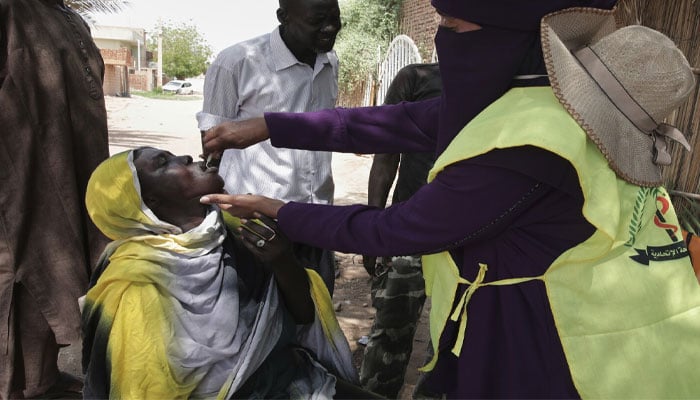
A rapidly spreading Cholera outbreak in Sudan’s Darfur region has claimed lives of 40 individuals and sickened more than 2,300 in the last week, according to Doctors Without Borders.
The medical aid group, also called Médecins San Frontières (MSF), stated this is said to be the worst outbreak the country has experienced in years, the Associated Press reported.
The case tally has reached an astonishing number of 99,700 suspected Cholera cases, and more than 2,470 related deaths have been reported across Sudan since last year.
MSF has issued warnings regarding the aggravating situation due to water shortages and a collapsed health system amid the recent war.
Cholera is caused by the bacterium Vibrio cholerae, a bacterial disease, spread via contaminated water and food.
Its symptoms may include dehydration, severe diarrhea, and if left untreated, it may become fatal.
The World Health Organization (WHO) called it a “disease of poverty” because it significantly spreads with contaminated water and poor sanitation.
In North Darfur’s Tawila town, 380,000 people have fled violence around El Fasher, as reported by the United Nations (UN). Many individuals are currently depending on dirty wells, while torrential rains have overwhelmed sewage systems, leaving stagnant water, the AP said.
Tawila Hospital, with a capacity of only 130 patients, admitted 400 Cholera cases, forcing some patients onto the floor.
To curb the surge in cases, the WHO plans a vaccination campaign once 400,000 Cholera doses come.
Treatment of Cholera
Cholera can be easily treated with oral rehydration antibiotics, and it may turn into a life-threatening condition if left untreated.












